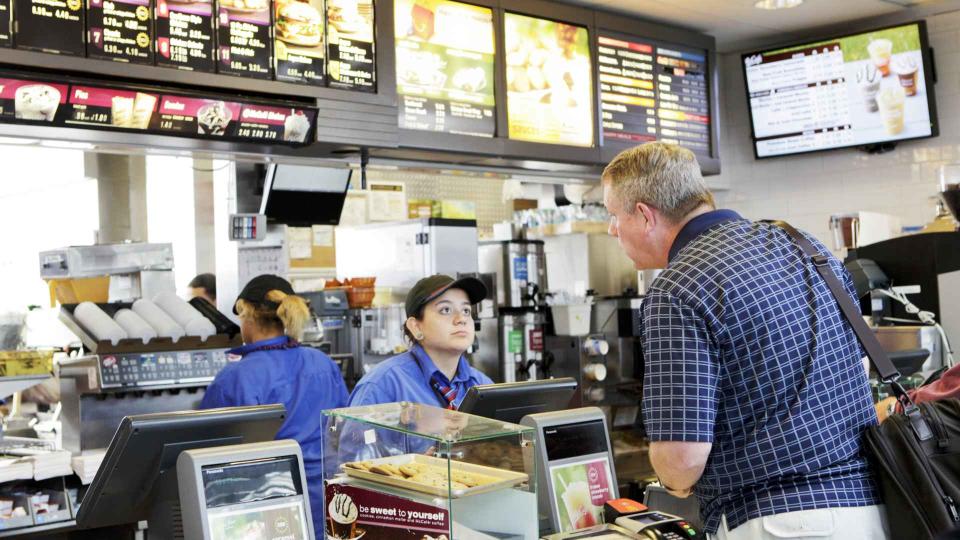6 Pros and Cons of California’s $20 Minimum Wage for Fast Food Workers on Americans’ Wallets

April Fool’s Day will bring good news to California fast-food workers through a higher minimum wage. Beginning April 1, 2024, all qualified fast-food workers in the Golden State must be paid at least $20 an hour, according to the California Department of Industrial Relations. That follows a new law that went into effect on January 1, raising the state’s minimum to $16 an hour across all industries.
Check Out: 7 Things You Must Do To Start Making $1K a Month in Passive Income
Read Next: 6 Unusual Ways To Make Extra Money (That Actually Work)
The new minimums were cheered by workers and worker’s rights advocates, mainly because pay raises can help affected employees deal with the state’s high consumer and housing prices. But the law has its critics as well.
Here’s a look at six pros and cons of the $20 minimum wage for California’s fast-food workers.
Pro: Workers Across Many Industries Will Get Needed Raises
Business Insider reported that the $20 minimum wage only applies to workers at larger chains with at least 60 locations – mainly employers like McDonald’s, Burger King and Subway. However, when those companies pay higher wages, competing restaurants and retailers must also raise their wages to compete for labor. This could create a ripple effect, leading to higher pay for many other jobs.
Con: Some Workers Could be Replaced by Machines
Norm Miller, the Ernest W. Hahn Chair of Real Estate Finance at the University of San Diego, told the San Diego Union-Tribune last year that a higher minimum wage could replace some workers with more automation and customer self-service.
Pro: Greater Disposable Income for Many Workers
Although $20 an hour won’t make you rich – especially in pricey California – some workers will get more financial breathing room to spend on discretionary purchases. This, in turn, will positively impact consumer spending and the economy at large.
Con: Restaurant Prices Might Rise
Whenever a business or industry faces higher labor and operating costs, you can be pretty sure they will respond by hiking their prices. Don’t be surprised if that cheeseburger or chicken dinner you’re used to buying becomes more expensive in the not-too-distant future.
Pro: Chains Will Expand Their Talent Pool
Higher wages in the fast-food and retail sectors could lure more workers into those industries, which will help relieve labor shortages. This could lead to better customer service and more business.
Con: Hours Might be Cut
Another way businesses deal with higher costs is to reduce their operating hours simply. Combining shorter hours and higher prices lets them meet their profit margin targets. But this also means workers will cut their hours – and consumers will have fewer hours to visit the establishments.
More From GOBankingRates
This article originally appeared on GOBankingRates.com: 6 Pros and Cons of California’s $20 Minimum Wage for Fast Food Workers on Americans’ Wallets

 Yahoo Finance
Yahoo Finance 